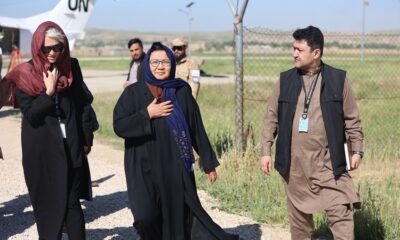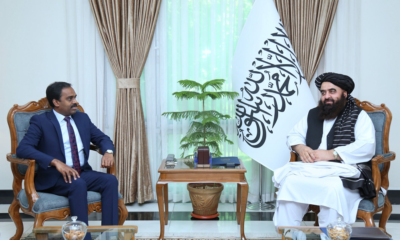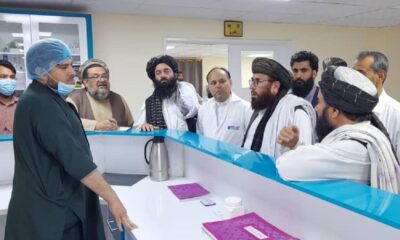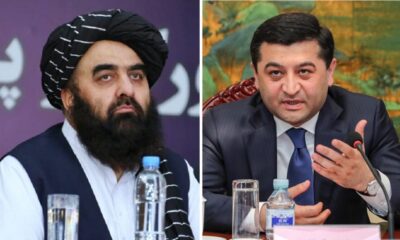Latest News
40% of Afghan media have closed, 80% of women journalists lost their jobs

A survey by Reporters Without Borders (RSF) and the Afghan Independent Journalists Association (AIJA) has found a radical change in the Afghan media landscape since the takeover by the Islamic Emirate of Afghanistan (IEA).
According to a report on the RSF website, a total of 231 media outlets have closed and more than 6,400 journalists have lost their jobs since 15 August.
Women journalists have been hit hardest, with four out of five no longer working, the report stated.
More than four out of every ten media outlets have disappeared and 60% of journalists and media employees are no longer able to work.
According to the RSF report, of the 543 media outlets tallied in Afghanistan at the start of the summer, only 312 were still operating at the end of November.
This means that 43% of Afghan media outlets disappeared in the space of three months.
The central Kabul region, which had more media than anywhere else, has not been spared. It has lost more than one of every two media outlets (51%). Of the 148 tallied prior to 15 August, only 72 are still operating.
RSF reported that the closure or reduction in the activities of media outlets has had a major impact on employment in the media sector. Of the 10,790 people working in the Afghan media (8,290 men and 2,490 women) at the start of August, only 4,360 (3,950 men and 410 women) – or four out of every ten media workers – were still working when this survey was carried out.
RSF attributed this change in part to new regulations issued by the IEA.
The rules require journalists to tell information and culture ministry officials what they would like to cover, get their permission to go ahead and finally inform them about the results of their reporting in order to be able to publish.
“There is an urgent need to rein in the spiral leading inevitably to the disappearance of Afghan media and to ensure that respect for press freedom is a priority,” said Reza Moini, the head of RSF’s Iran-Afghanistan desk.
“Journalists’ safety, the fate of women journalists, media legislation and the right of access to news and information are all crucial issues that the authorities must address without delay. Without a free press capable of exposing bad governance’s failings, no one will be able to claim that they are combatting famine, poverty, corruption, drug trafficking and the other scourges that afflict Afghanistan and prevent a lasting peace.”
IEA spokesman Zabihullah Mujahid told RSF that the Islamic Emirate of Afghanistan supports “freedom for the media in the defined framework for preserving the country’s higher interests, with respect for the Sharia and Islam.” He also said that the government wanted to “help those media that are operating to continue to do so, and help the others to find solutions so that they can resume operating.”
Aside from new rules, media owners have to cope with new economic constraints. Many media outlets were receiving national and international funding that ended when the IEA seized control.
“These subsidies, which came above all from countries that had a military presence in Afghanistan and which had an interest in providing them, have now ended,” said Mujahid.
Recognizing the disappearance of many media outlets, Mujahid noted that many media “executives and managers had fled the country.”
This had contributed to the “collapse” of their media outlets, he said.
Latest News
UNAMA chief visits northern Afghanistan, meets local officials including women
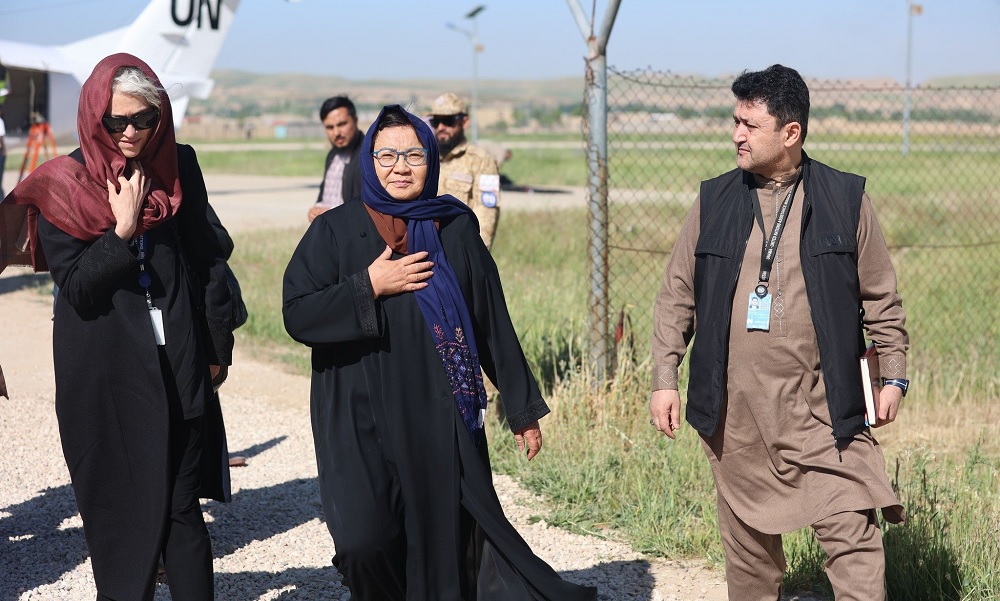
Roza Otunbayeva, Head of the United Nations Assistance Mission in Afghanistan (UNAMA), recently visited the city of Maimana in northern Afghanistan, where she met with local officials, entrepreneurs, and UN staff.
UNAMA wrote on its Facebook page on Sunday, that during the visit, entrepreneurs — including women — met with Otunbayeva, and requested support to facilitate access to new markets, particularly in Uzbekistan.
UNAMA further stated that among these entrepreneurs was a group of women who, with the support of the United Nations Development Programme (UNDP), had established a tailoring workshop.
They expressed their appreciation for the support received and spoke about the significant growth and development of their business.
UNAMA added that the organization remains committed to promoting economic opportunities and empowering Afghan communities, especially women.
Latest News
Senior Indian official meets with FM Muttaqi in Kabul
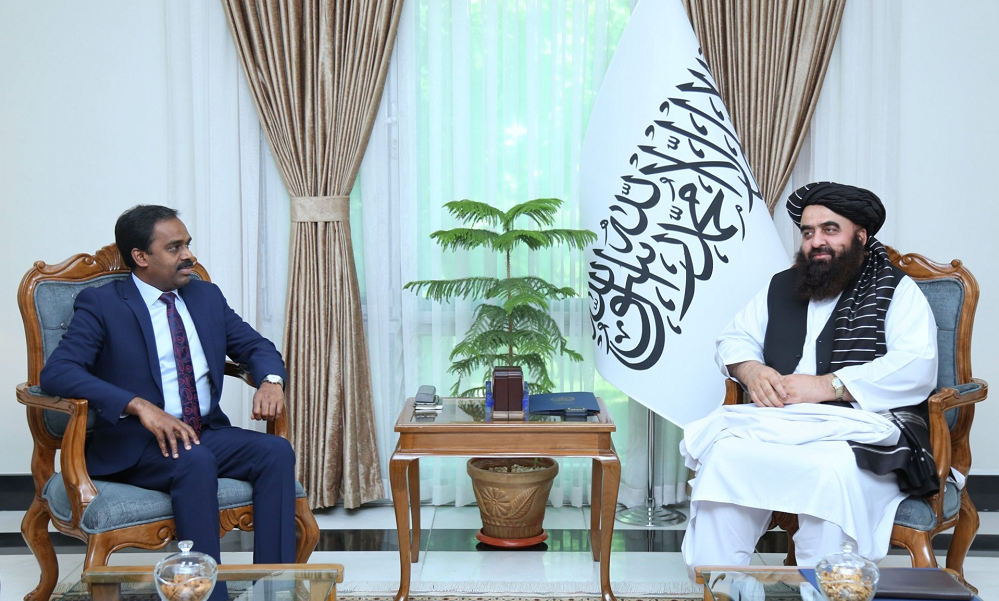
Anand Prakash, head of the Afghanistan, Iran and Pakistan Division of the Indian Ministry of External Affairs, met with Acting Foreign Minister Amir Khan Muttaqi in Kabul for talks on various issues.
According to a press release issued Sunday by the Afghan Foreign Ministry, bilateral political relations, trade, transit and recent political developments in the region were discussed in the meeting.
Muttaqi stressed the need for the expansion of diplomatic and economic relations between the two countries and explained that Afghanistan currently offers favorable opportunities for investment. He said Indian investors should take advantage of these opportunities.
He also said that facilities should be created for the movement of people between Afghanistan and India and the issuance of visas for medical purposes, students and businessmen should return to normal.
Meanwhile, Prakash said that relations with Afghanistan are important for India and he hopes that these relations will expand further in various fields.
He stressed that India will continue its cooperation with Afghanistan and wants to invest in some infrastructure projects and restart projects that were paused for some time.
The two sides also emphasized the expansion of relations, the exchange of delegations, visa facilitation and bilateral cooperation.
Latest News
Afghanistan ‘fully ready’ for Trans-Afghan railway project: Muttaqi
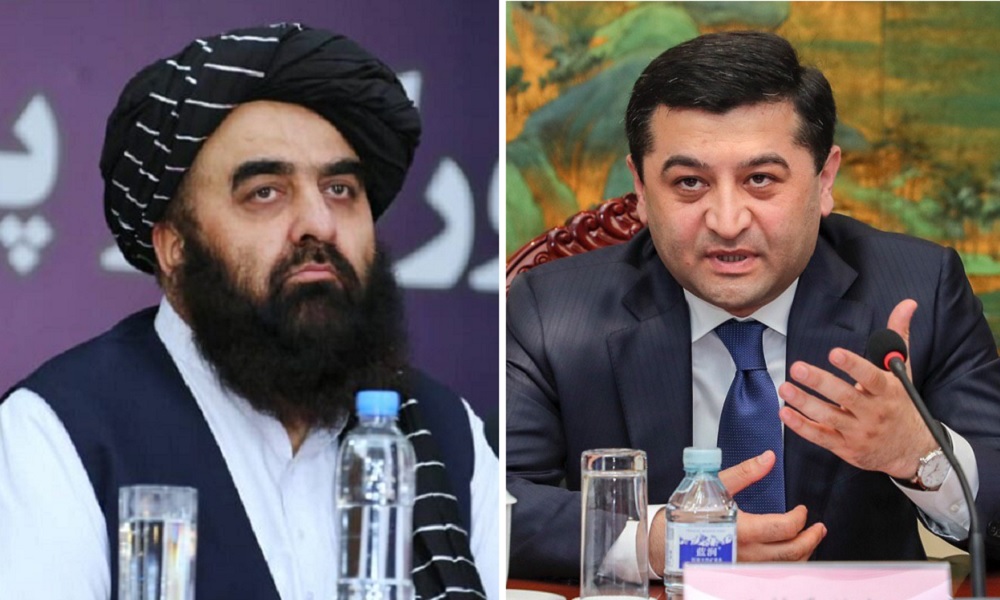
Acting Foreign Minister Amir Khan Muttaqi has said in a phone call with his Uzbek counterpart that Afghanistan is fully prepared for the implementation of the Trans-Afghan railway project.
During the call, the two sides discussed strengthening bilateral and multilateral relations, as well as expanding political, economic and transit cooperation, the Ministry of Foreign Affairs in Kabul said in a statement on Sunday.
Uzbek Foreign Minister Bakhtiyor Saidov noted that Afghanistan’s exports to Uzbekistan have tripled in the first four months of 2025 compared to last year. He vowed to create more facilities in the field of trade and transit between the two countries, especially in issuing visas to Afghan citizens.
Meanwhile, Amir Khan Muttaqi said that Afghanistan is fully prepared for the implementation of major economic projects such as the Trans-Afghan railway project and for the strengthening of political, trade and transit cooperation with Uzbekistan. He said that the existing opportunities should be utilized for the mutual benefit of the two countries.
The two sides also discussed the holding of a trilateral meeting between Afghanistan, Uzbekistan and Pakistan at the level of foreign ministers and agreed to coordinate through diplomatic channels to determine the exact date and place of the meeting.
The three neighboring countries signed an agreement in February 2021 to construct a 573-kilometer railway line through Afghanistan, connecting landlocked Central Asia to Pakistan seaports, with an estimated cost of $4.8 billion to enhance regional economic connectivity.
Pakistan’s Deputy Prime Minister and Foreign Minister Ishaq Dar held a telephone conversation with Uzbek foreign minister last Thursday to discuss the Trans-Afghan railway project.
Dar expressed hope that the three countries would soon sign a framework agreement on this important regional project.
-

 Sport4 days ago
Sport4 days agoSri Lanka A defeats Afghanistan A by 4 wickets in Abu Dhabi
-

 Business4 days ago
Business4 days agoAfghanistan’s growth prospects remain uncertain amid global uncertainty: World Bank report
-
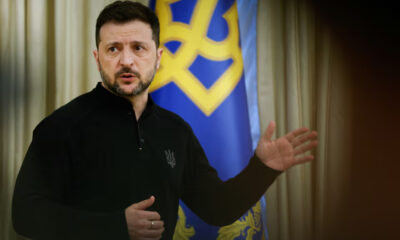
 World5 days ago
World5 days agoUkraine ready to hold talks with Russia once ceasefire in place, Zelenskiy says
-

 Latest News4 days ago
Latest News4 days agoAWCC activates new site in Nangarhar’s Kuz Kunar district
-

 Latest News3 days ago
Latest News3 days agoTarig Ali Bakheet and Japan’s Deputy Foreign Minister discuss Afghanistan’s situation
-

 Climate Change4 days ago
Climate Change4 days agoPowerful earthquake of 6.2 magnitude shakes Istanbul
-

 Business3 days ago
Business3 days agoPakistan’s deputy PM discusses Trans-Afghan Railway Line project with Uzbek FM
-

 Latest News4 days ago
Latest News4 days agoSpecial meeting will be held to launch Afghanistan–Russia joint commission, says Kabulov


